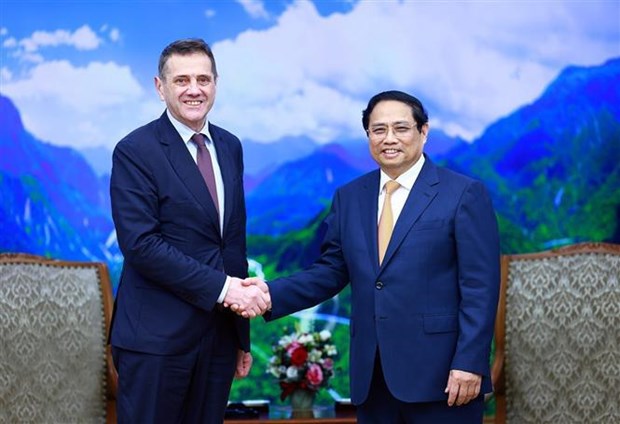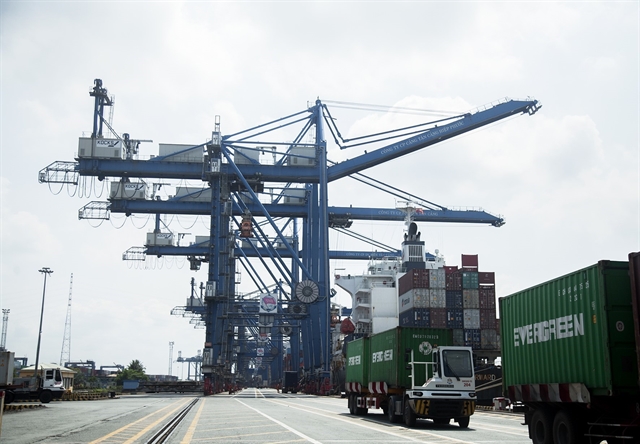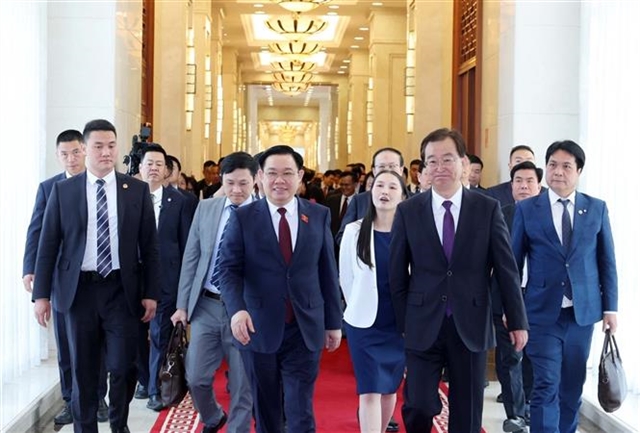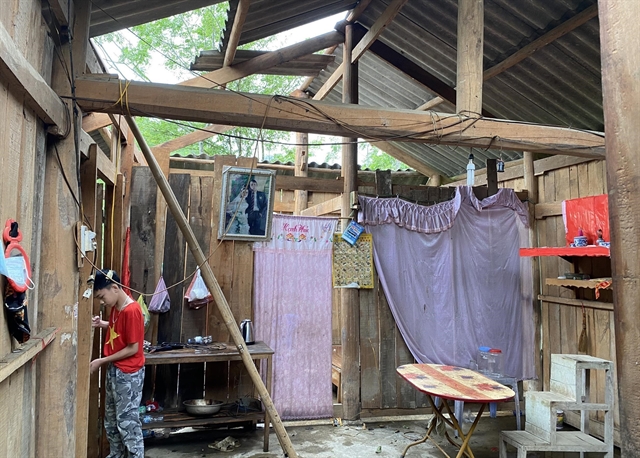 Society
Society

Local authorities play a particularly important role in implementing health programmes at their localities as well as co-ordinating with different sectors to help people easily access and efficiently use quality healthcare services at a reasonable cost.
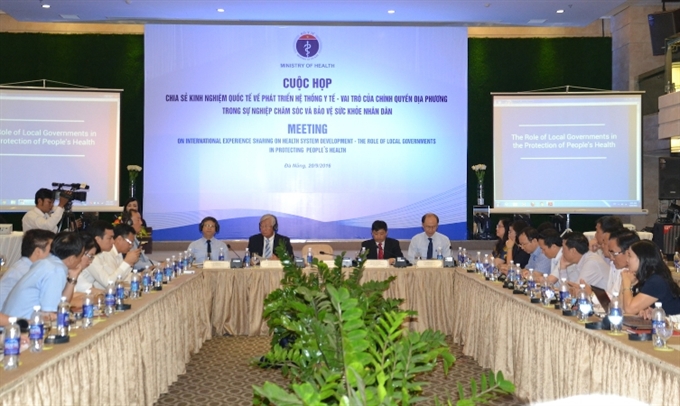 |
| Delegates attend the conference sharing international experiences in developing local healthcare systems held in the central city of Đà Nẵng yesterday. — Photo VGP |
ĐÀ NẴNG — Local authorities play a particularly important role in implementing health programmes at their localities as well as co-ordinating with different sectors to help people easily access and efficiently use quality healthcare services at a reasonable cost.
Minister of Health, Nguyễn Thị Kim Tiến, said this at a conference sharing international experiences in developing local healthcare systems held in the central city of Đà Nẵng yesterday.
Addressing the conference, Tiến stressed that in order to take good care of and protect people’s health in Việt Nam, besides the efforts of health workers, it was necessary to have the support of local governments at all levels in administering and organising health programmes.
“In recent years, the health sector in Việt Nam has made great progress in the process of international integration, brought back positive changes and made important achievements,” she said, naming some achievements of the sectors including mobilising enormous resources, both financial and technical, applying and deploying more advanced techniques and modern technology in diagnosis and treatment, effective disease prevention, production of many vaccines and the successful implementation of the Millennium Development Goals.
The health minister noted that health insurance in the country had been expanded to 76.52 per cent of the population while the programme to ease overloading at hospitals was being implemented effectively.
She hoped to learn about the experiences of other countries and from the World Health Organisation (WHO).
The WHO’s Regional Director for the Western Pacific, Dr Shin Young-soo, who is in Việt Nam from September 18-21, praised Việt Nam for its substantial achievements in the healthcare sector but also pointed out that rapid development exposed the weaknesses of the health system.
“There are symptoms that show that the health system is not coping or is not meeting the needs of the country,” he said to representatives from the health ministry and authorities from 19 provinces and cities, adding that local governments were charged with the responsibility of policy implementation.
“You need to look at how to prioritise your investment in the health system,” he said.
“It is not news to you that hospitals are overcrowded and grassroots services are being bypassed. But overinvestment in hospitals and high technology services and underinvestment in grassroots services, cannot solve this problem,” he added.
The WHO official stressed the new challenges facing Việt Nam such as non-communicable diseases and an aging population, which would further constrain the health system without attention to prevention.
He said that as Việt Nam developed further and industrialised rapidly, environmental pollution and occupational illnesses and injuries would increase.
“This means attention must be given to health protection, with strong regulatory measures and a sound surveillance system,” he said.
Dr Shin also said local governments in Việt Nam had to ensure national policies and programmes were enforced and implemented.
“They have the authority and the responsibility to ensure basic services are delivered to meet people’s needs,” he said.
Participants at the conference discussed, exchanged and shared experiences on the development of health systems in their localities and the important role of local government in the sector’s development.
A resolution signed by Prime Minister Nguyễn Xuân Phúc late last month on 21 targeted development programmes in 2016-2020 promised to invest VNĐ22.5 trillion (roughly US$1 billion) to develop local health systems throughout the country. — VNS






